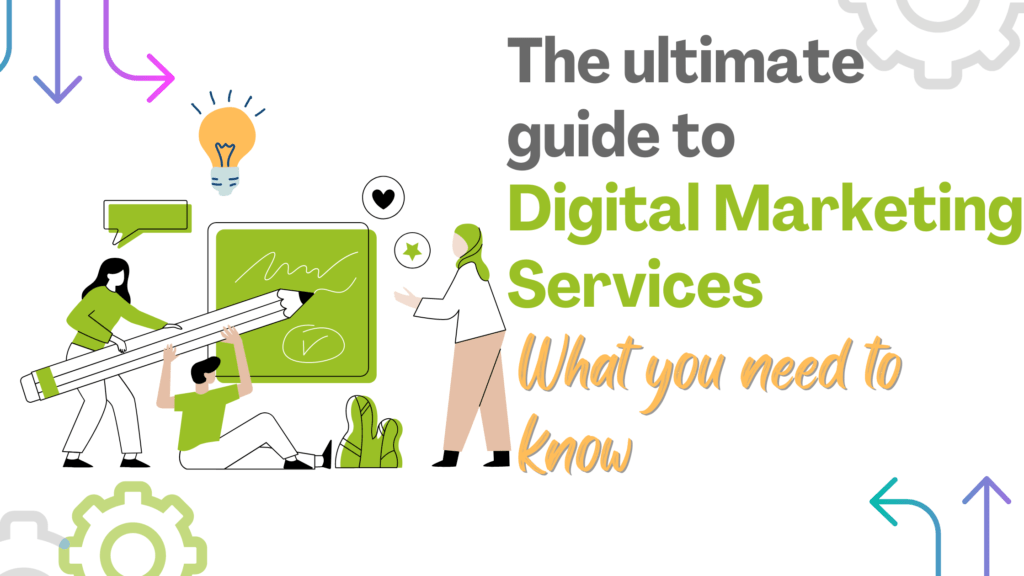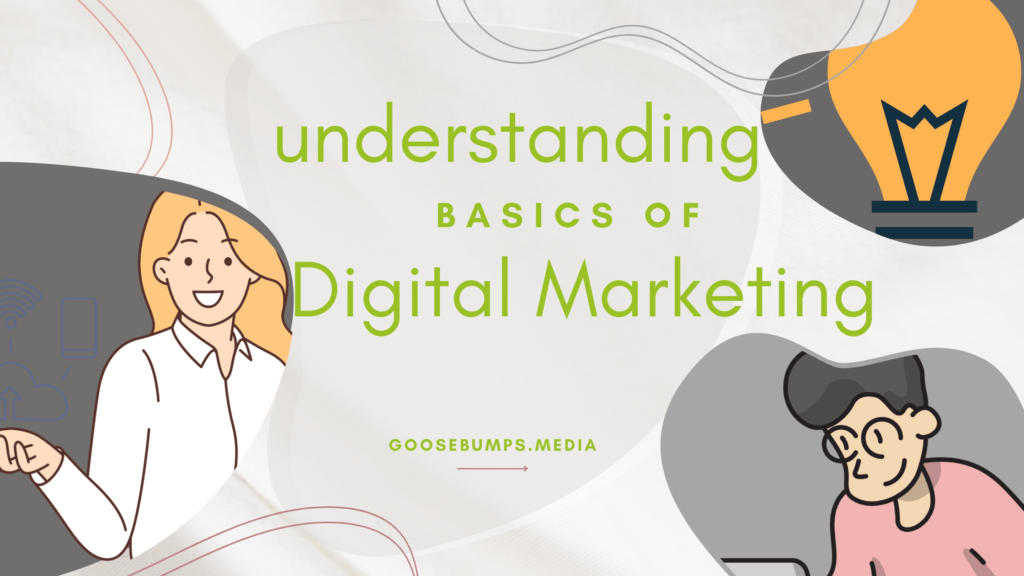
Digital marketing has revolutionized the way businesses connect with their target audience, enabling precise targeting, measurable results, and cost-effective strategies. In this comprehensive guide, we delve into the essential aspects of digital marketing services, providing valuable insights and strategies for success.
Introduction to Digital Marketing Services
What is digital marketing?
Digital marketing encompasses a range of online strategies and tactics aimed at promoting products or services through digital channels. These channels include search engines, social media platforms, email, and websites.
Importance of digital marketing services in the modern business landscape.
In today’s digital age, consumers are increasingly relying on online platforms for information, entertainment, and shopping. Digital marketing services allow businesses to reach their audience where they spend most of their time—online.
Brief history and evolution of digital marketing.
Digital marketing has evolved significantly since its inception, from basic banner ads to sophisticated targeted campaigns using AI and machine learning. Understanding this evolution is crucial for implementing effective digital marketing strategies.
Key Components of Digital Marketing Services
Search Engine Optimization (SEO)
SEO plays a vital role in improving a website’s visibility on search engines like Google. It involves optimizing content, meta tags, and technical aspects to rank higher in organic search results.
Pay-Per-Click (PPC) Advertising
PPC advertising allows businesses to display ads on search engines and pay only when users click on them. Effective PPC campaigns require keyword research, ad creation, and continuous optimization.
Social Media Marketing
Social media platforms like Facebook, Instagram, and Twitter offer powerful tools for reaching and engaging with target audiences. Social media marketing involves content creation, community management, and paid advertising.
Email Marketing
Email marketing remains a cost-effective way to nurture leads and drive conversions. Personalized emails, segmented campaigns, and automated workflows are key components of successful email marketing strategies.
Content Marketing
Content is king in digital marketing. Creating valuable and relevant content helps attract and retain customers, improve SEO, and build brand authority.
Influencer Marketing
Partnering with influencers can amplify brand awareness and credibility. Identifying the right influencers, negotiating partnerships, and measuring campaign success are crucial in influencer marketing.
Analytics and Data-driven Insights
Data analytics provide valuable insights into campaign performance, audience behavior, and ROI. Tools like Google Analytics and marketing automation platforms help track key metrics and optimize strategies.
Benefits of Digital Marketing Services
Increased brand visibility and reach
Digital marketing allows businesses to reach a global audience and increase brand awareness through targeted campaigns.
Targeted audience engagement
Segmentation and personalization enable businesses to tailor marketing messages to specific audience segments, increasing engagement and conversions.
Cost-effective compared to traditional marketing
Digital marketing often requires lower investment than traditional marketing channels like TV ads or print media, making it accessible to businesses of all sizes.
Measurable results and analytics tracking
Digital marketing offers detailed analytics and reporting, allowing businesses to track campaign performance in real-time and make data-driven decisions.
Understanding SEO in Digital Marketing Services
Importance of SEO for organic search visibility
Optimizing website content and structure for SEO improves organic search rankings, driving more traffic and leads.
On-page SEO techniques
Optimizing meta tags, headings, and content for relevant keywords enhances on-page SEO and improves search engine visibility.
Off-page SEO strategies
Building backlinks, social signals, and online reputation contributes to off-page SEO, boosting website authority and trustworthiness.
SEO tools and best practices
Utilizing SEO tools like SEMrush, Moz, and Google Search Console helps identify opportunities, track performance, and optimize SEO strategies.
Harnessing the Power of PPC Advertising
Overview of PPC advertising platforms
Google Ads, Bing Ads, and social media platforms offer robust PPC advertising solutions with targeting options and performance tracking.
Creating effective PPC campaigns
Keyword research, ad copy optimization, and bid management are essential for creating successful PPC campaigns that drive conversions.
Bid management and budgeting tips
Strategic bidding and budget allocation maximize ROI and ensure efficient use of advertising budget in PPC campaigns.
PPC analytics and optimization
Analyzing PPC metrics like click-through rate (CTR), conversion rate, and cost per acquisition (CPA) helps optimize campaigns for better performance.
Social Media Marketing Strategies
Building a strong social media presence
Consistent posting, engaging content, and community interaction build brand loyalty and attract followers on social media.
Content strategy for social media platforms
Tailoring content formats (images, videos, stories) and messaging to each social media platform improves engagement and reach.
Engagement and community management
Responding to comments, messages, and reviews fosters a positive brand image and strengthens relationships with customers.
Social media advertising options
Paid social media ads offer precise targeting options based on demographics, interests, and behavior, driving relevant traffic and conversions.
Email Marketing Best Practices
Building an email subscriber list
Offering incentives, creating sign-up forms, and leveraging social proof encourage users to subscribe to email lists.
Email campaign design and content tips
Well-designed emails with compelling content, clear CTAs, and mobile responsiveness improve open and click-through rates.
Personalization and segmentation strategies
Segmenting email lists based on user behavior, preferences, and demographics allows for personalized and targeted email campaigns.
Email marketing analytics and performance tracking
Analyzing email metrics like open rate, click-through rate, and conversion rate provides insights into campaign effectiveness and audience engagement.
Content Marketing Strategies for Success
Creating valuable and engaging content
High-quality content that educates, entertains, or solves problems resonates with audiences and drives engagement.
Content distribution channels
Utilizing various content formats (blogs, videos, infographics) and distribution channels (social media, email, SEO) maximizes content reach and impact.
SEO integration with content marketing
Optimizing content for SEO improves visibility and organic traffic, enhancing the effectiveness of content marketing efforts.
Content marketing ROI measurement
Tracking metrics like traffic, leads, conversions, and engagement helps assess the ROI of content marketing initiatives and refine strategies.
Influencer Marketing: Leveraging Industry Influencers
Identifying and collaborating with influencers
Researching relevant influencers, establishing partnerships, and defining goals are essential steps in influencer marketing.
Influencer marketing campaign strategies
Co-creating content, running contests or giveaways, and leveraging influencer networks amplify brand reach and engagement.
Measuring influencer marketing impact
Tracking metrics like reach, engagement, and conversions attributed to influencer collaborations evaluates campaign success and ROI.
Legal considerations and disclosures
Ensuring compliance with FTC guidelines, transparent disclosures, and clear contractual agreements protect both brands and influencers.
Analytics and Data-driven Insights
Importance of data analytics in digital marketing
Data-driven decision-making based on analytics improves campaign performance, targeting accuracy, and ROI.
Key metrics to track
Monitoring metrics like website traffic, conversion rates, bounce rates, and customer acquisition costs informs marketing strategies and optimizations.
Tools for data analysis and reporting
Utilizing analytics tools like Google Analytics, marketing automation platforms, and CRM systems provides actionable insights and performance reports.
Continuous optimization based on data insights
Iteratively testing and optimizing campaigns, content, and targeting based on data insights ensures ongoing improvements and success in digital marketing.
Conclusion
The landscape of digital marketing services is dynamic and ever-evolving, requiring businesses to stay agile, informed, and proactive in their strategies. By understanding the key components, benefits, and best practices outlined in this guide, businesses can navigate the digital realm effectively, reach their target audience, and achieve marketing success.






